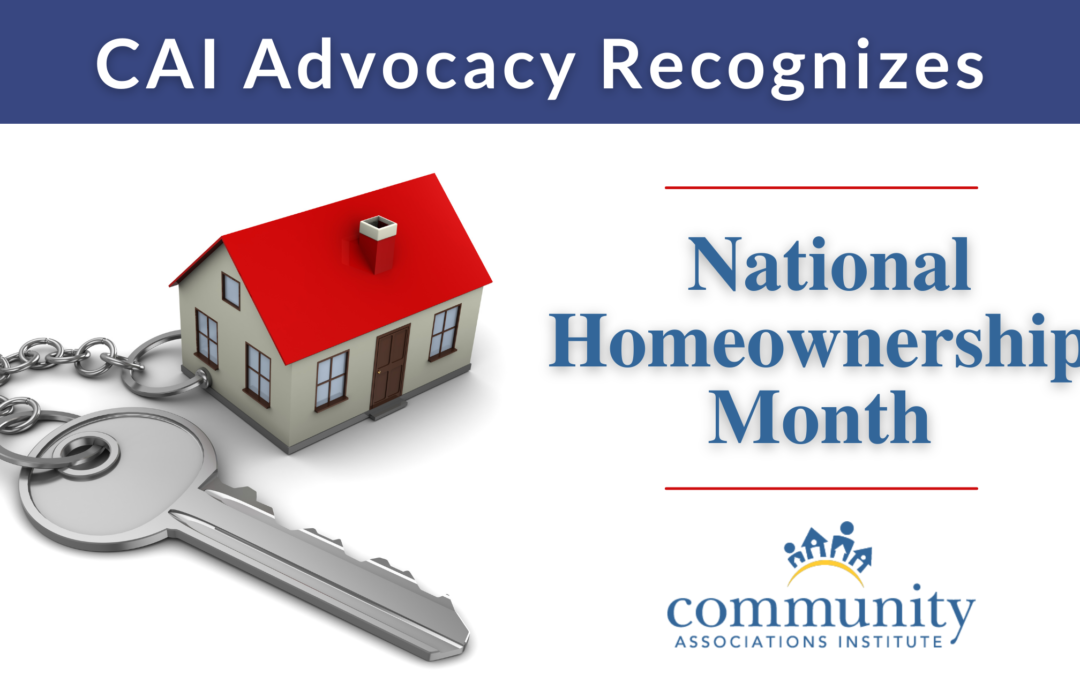On June 1, President Joe Biden issued a proclamation as part of National Homeownership Month acknowledging that a large aspect of the American dream is a person’s aspiration to own a home. Both the White House and the Department of Housing and Urban Development have pledged to continue advancing the goal of affordable and sustainable homeownership in our country. This month now serves as an opportunity to remind Americans of the importance of homeownership and the value that living in a community association can bring to this dream.
More Americans live in community associations today than ever before, according to data from the Foundation for Community Association Research. The 2019-2020 National and State Statistical Review for Community Association Data shows that 73.9 million Americans, or roughly 27% of the U.S. population, now live in a homeowners association, condominium community, or housing cooperative, collectively referred to as community associations or planned communities.
Community associations provide one answer to the growing issue of sprawl, which is no longer confined to cities and the inner suburbs. By definition, planned communities offer a more efficient use of land than unplanned areas where developments leapfrog over each other into any available space. In addition, these land use efficiencies can make homes more affordable, a benefit for first-time homebuyers, retirees, and low- and moderate-income families.
For decades, there has been a consistent effort to increase the percentage of homeowners in the U.S., with certain types of associations providing Americans the dream of homeownership with affordable housing options. Since the 1960s, condominiums have tended to serve as lower-cost entry housing, especially for first-time homebuyers. Condominium communities account for 35–40% of the reported total of community associations, according to the Foundation.
Since the original state condominium acts were drafted in the 1960s, we have had more than 50 years of experience in the development and operation of common interest communities. Many states now have adopted a version of uniform community association acts partially or in their entirety to help communities navigate creation, management, and operations of their association. These acts include standards to provide consumer protection to community association homeowners.
Buying a home or unit in a condominium, co-op, or planned development should be a positive event but can be a stressful and confusing time for the homebuyer. CAI supports mandating disclosure documents and resale certificates for all ownership transfers of homes or units in a community association to ensure that the association is notified of every pending sale and that the transferee is aware of the obligations with respect to the property.
CAI believes that homeowners should be informed about association matters that may impact their decision to purchase a home or condo unit and educate them about their personal rights and responsibilities regarding the community association. Disclosure documents and resale certificates are invaluable consumer information tools; it is vital that buyers know what they are purchasing.
These materials should be mandated by state law to ensure that every homebuyer is aware of essential information relating to his or her new home or unit and the community association. Learn about your state’s sales disclosure requirement laws here.
CAI will continue to advocate for the same goals as the White House and the HUD of advancing the goal of affordable and sustainable housing throughout the U.S., as well as ensuring that consumer protections for homebuyers are met along the way. Learn more about CAI’s advocacy resources here.



